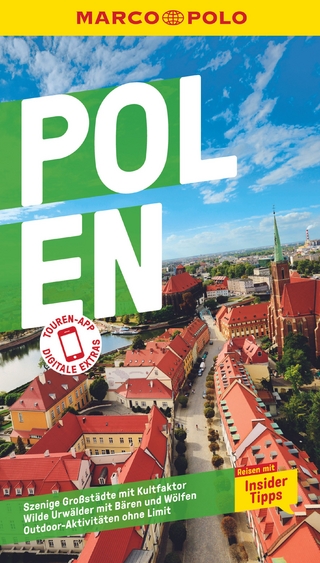
Contemporary Poland
Seiten
1996
Routledge (Verlag)
978-1-85728-046-3 (ISBN)
Routledge (Verlag)
978-1-85728-046-3 (ISBN)
- Titel wird leider nicht erscheinen
- Artikel merken
A volume in the "Changing Eastern Europe series", this is a comprehensive text on contemporary Polish society.
With an innovative emphasis on popular experience and public opinion, "Contemporary Poland" attempts to describe and interpret modern Polish society. It is a timely account, given that the Polish entire social, economic and political system is changing, both in general and with respect to different specific arenas of activity. Since 1989 Poland, along with the rest of eastern Europe, has been in a major period of transition. The two main challenges have arisen from external sources: the challenge of modernization from the unification of Europe to the west, and the challenge of security from the collapse of the Soviet Union to the east. The internal transformation is taking place in a situation without precedent. The creation of new democratic structures, social structures and new relations between state and society can be observed from their very beginning. These transformations are taking place with varying degrees of success, in adapting to the competitive and efficiency requirements of the capitalist world economy.
The moral value system is also changing, from the earlier emphasis on the collective to the more individualistic attitudes of enterprise and autonomous self-dependence. The book filters these various aspects of transformation through the space dimension. The first part sets out the necessary background. The pivotal issues are the place of Poland in the eastern European context, the role of communist ideology, and the key elements of political development leading to the collapse of the communist system. The second part looks at the impact of communism on social, economic and regional differentiation. The spatial structure formed under communism will remain for some time, influencing the future development of Poland, both as a constraint and as a set of opportunities. The third part considers the post-communist transformation and its spatial components, including the impact of various dimensions of change and the emergence of new regional structures. Special attention is given to the regional differentiation of adaptation to new economic conditions, in the context of the formation of new political and economic structures.
All students and researchers concerned with the post-communist evolution of eastern Europe will welcome this book for its insights into the contemporary Polish scene from a leading Polish scholar.
With an innovative emphasis on popular experience and public opinion, "Contemporary Poland" attempts to describe and interpret modern Polish society. It is a timely account, given that the Polish entire social, economic and political system is changing, both in general and with respect to different specific arenas of activity. Since 1989 Poland, along with the rest of eastern Europe, has been in a major period of transition. The two main challenges have arisen from external sources: the challenge of modernization from the unification of Europe to the west, and the challenge of security from the collapse of the Soviet Union to the east. The internal transformation is taking place in a situation without precedent. The creation of new democratic structures, social structures and new relations between state and society can be observed from their very beginning. These transformations are taking place with varying degrees of success, in adapting to the competitive and efficiency requirements of the capitalist world economy.
The moral value system is also changing, from the earlier emphasis on the collective to the more individualistic attitudes of enterprise and autonomous self-dependence. The book filters these various aspects of transformation through the space dimension. The first part sets out the necessary background. The pivotal issues are the place of Poland in the eastern European context, the role of communist ideology, and the key elements of political development leading to the collapse of the communist system. The second part looks at the impact of communism on social, economic and regional differentiation. The spatial structure formed under communism will remain for some time, influencing the future development of Poland, both as a constraint and as a set of opportunities. The third part considers the post-communist transformation and its spatial components, including the impact of various dimensions of change and the emergence of new regional structures. Special attention is given to the regional differentiation of adaptation to new economic conditions, in the context of the formation of new political and economic structures.
All students and researchers concerned with the post-communist evolution of eastern Europe will welcome this book for its insights into the contemporary Polish scene from a leading Polish scholar.
Part 1 Introduction: Poland in a European context; ideology and social and economic structure; towards transformation - the decline and rejection of the communist system. Part 2 The regional differentiation and post-communist transformation: regional and spatial structure; population; urban Poland; the ecological consequences of industrialization and urbanization. Part 3 The post-communist challenge: the social consequences of transformation; the new political structure; the emergence of new regional differentiation; the security and modernization challenges.
| Erscheint lt. Verlag | 25.4.1996 |
|---|---|
| Zusatzinfo | 79 illustrations, references, index |
| Verlagsort | London |
| Sprache | englisch |
| Themenwelt | Reisen ► Reiseführer ► Deutschland |
| Reiseführer ► Europa ► Polen | |
| Naturwissenschaften ► Geowissenschaften ► Geografie / Kartografie | |
| Sozialwissenschaften ► Soziologie | |
| Wirtschaft ► Allgemeines / Lexika | |
| Wirtschaft ► Volkswirtschaftslehre | |
| ISBN-10 | 1-85728-046-6 / 1857280466 |
| ISBN-13 | 978-1-85728-046-3 / 9781857280463 |
| Zustand | Neuware |
| Haben Sie eine Frage zum Produkt? |
Mehr entdecken
aus dem Bereich
aus dem Bereich


